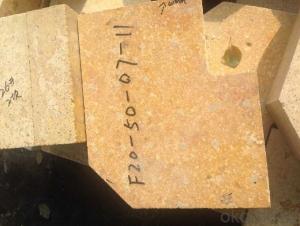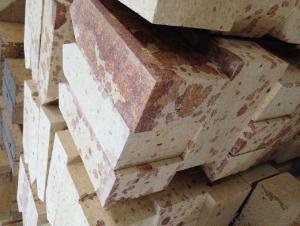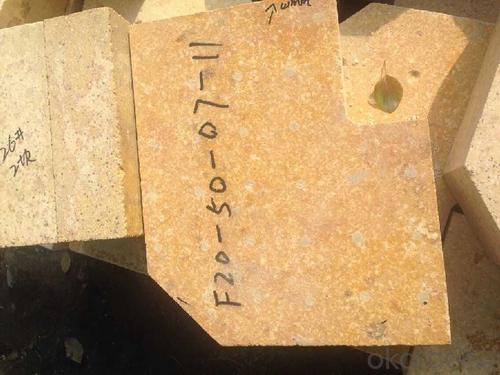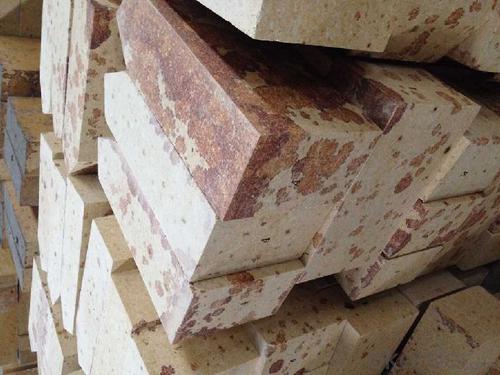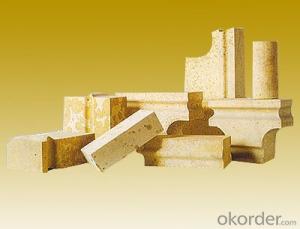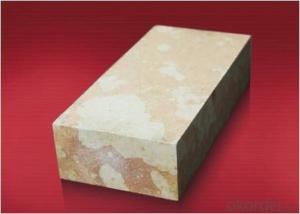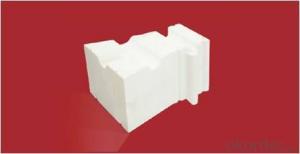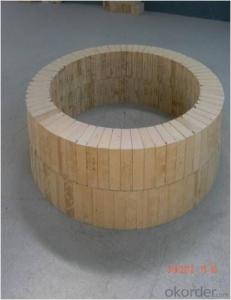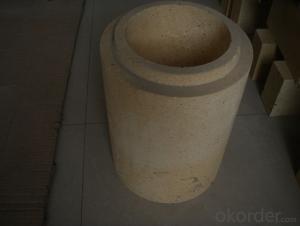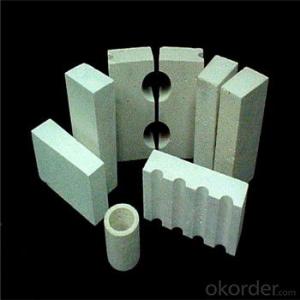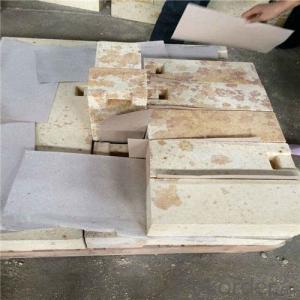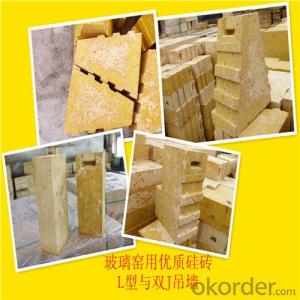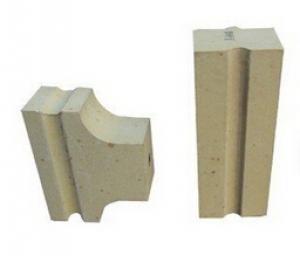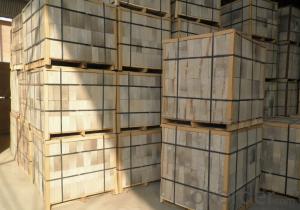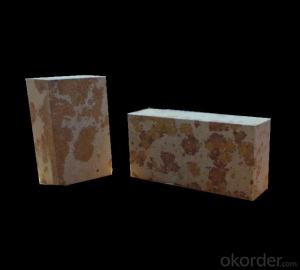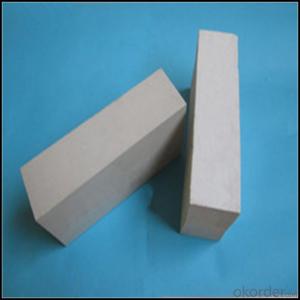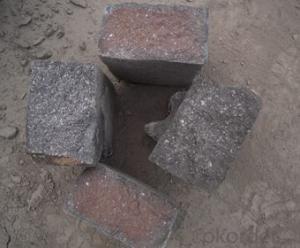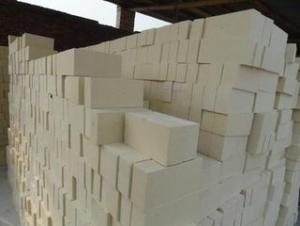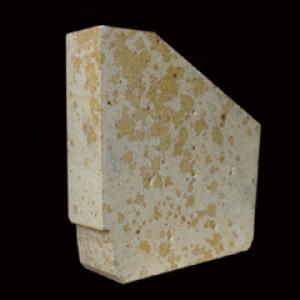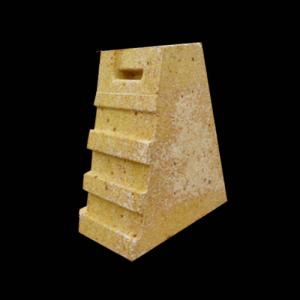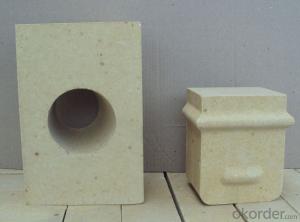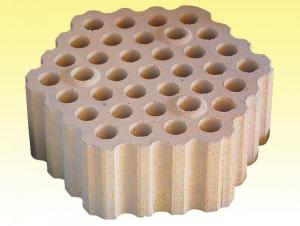Silica Brick for Hot Blast Oven - Refractory Silica Brick
- Loading Port:
- Shanghai
- Payment Terms:
- TT OR LC
- Min Order Qty:
- 15 m.t.
- Supply Capability:
- 30000 m.t./month
OKorder Service Pledge
OKorder Financial Service
You Might Also Like
General Information
The CMAX super-duty silica bricks for glass melting tank is characterized by high purity, less impurity, good corrosion resistance, higher bulk density, complete phase transformation, lower residual quartz, high RUL, lower thermal expansion and stable volume at high temperature. This leads to increase in service life of glass furnace and reduction in energy consumption. These products have found wide application in crown and key areas and been highly appreciated by clients.
Features
1) A variety of specifications available.
2) Satisfy various technical request.
3) Lower medium spoilage.
4) Good insulation performance and high temperature resistance.
5) High compressive strength.
6) Used in all electric products and electric heating products.
7) OEM, ODM and OBM are welcomed.
Application
Glass melting tank
Glass furnace
Hot-Blast Stoves
Performance | |||||
Item | Unit | 95 Al2O3 | 96 Al2O3 | 99 Al2O3 | |
Physical Characteristics | Bulk density | g/cm3 | 3.6 | 3.6 | 3.9 |
Water absorption | % | 0 | 0 | 0 | |
Mechanical Characteristics | Flexural strength | Mpa | 320 | 340 | 360 |
Hardness Vickers | Gpa | 12.2 | 13.5 | 15.6 | |
Elastic modulus | Gpa | 280 | 320 | 370 | |
Poisson’s ratio | - | 0.22 | 0.23 | 0.23 | |
Thermal Characteristics | Linear expansion coefficient | (200C-5000C) 10-6/0C | 7.1 | 7.2 | 8 |
Thermal conductivity | w/(m.k) | 16 | 24 | 32 | |
Specific Heat | *10-3J/(kg*K) | 0.78 | 0.78 | 0.9 | |
Electrical Characteristics | Dielectric constant (1MHZ) | - | 9 | 9.4 | 9.9 |
Dielectric loss angle | *10-4 | 15 | 5 | 1 | |
Dielectric strength | *106V/m | 12 | 15 | 15 | |
Processing technology | |||||
Process range (mm) | |||||
Outside Diameter | 1---300 | ||||
Inside Diameter | 0.5---300 | ||||
Length | 0.5---1200 | ||||
Accuracy of working (mm) | |||||
Perpendicularity | 0.01 | ||||
Concentricity | 0.01 | ||||
Roundness | 0.005 | ||||
Straightness | 0.005 | ||||
Parallelism | 0.01 | ||||
Planeness | 0.005 | ||||
Roughness | 0.05 | ||||
Fit clearance | 0.005 | ||||
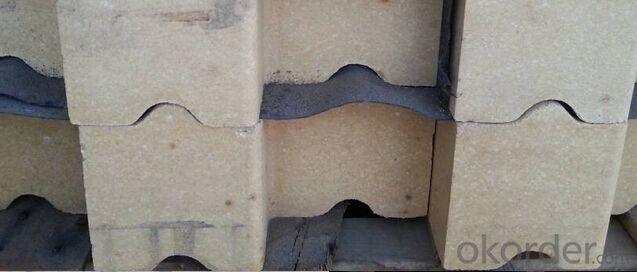
- Q: Because of the recent relates to this industry, by way of learning to name for all raw materials, I hope knowledgeable friends exhibitions, thank you.
- The main raw material is the main body of refractory. Auxiliary raw materials can be divided into binders and additives. The role of bonding agent is to make the refractory body in the production and use process has enough strength. There are commonly used lignin, phenolic resin, asphalt, cement, water glass, phosphoric acid and phosphate, sulfate, some main raw material itself has the effect of binder, such as clay; additive is to improve the production of refractory materials and construction technology, or strengthen the refractory material of some properties, such as stabilizer, water reducing agent, inhibitor, plasticizer, foaming agent, dispersing agent, bulking agent, antioxidant.
- Q: What is the main material of silica brickIt's common, the kind we see so often!
- More than 94% silica content. True density 2.35g/cm3. With acid resistance, slag erosion performance.
- Q: Semisilica brick, clay brick, high alumina brick and what is the difference?
- This is a kind of refractory material is divided into three types: semisilica brick (A12O315 ~ 30%), clay brick (A12O330 ~ 48%), high aluminum brick (A12O3>48%).
- Q: Which material is good for furnace refractory?
- Neutral refractory is mainly composed of alumina, chromium oxide or carbon. Corundum products containing more than 95% of alumina are a kind of high quality refractory materials with a wide range of uses. Chrome brick with chromium oxide as its main component has good corrosion resistance, but its thermal shock resistance is poor, and its deformation temperature is lower at high temperature. Carbon refractories with carbon bricks, graphite and silicon carbide products, low coefficient of thermal expansion, high thermal conductivity, good thermal shock resistance, high strength, resistance to acid and salt corrosion, especially weak acid has good resistance, without wetting of the metal and slag, light. It is widely used as lining material of high temperature, and also used as lining of autoclave in petroleum and chemical industry.
- Q: The brick is mainly used in the place?
- Also used for high temperature bearing part of hot blast stove and acid open hearth furnace.
- Q: The high thermal conductivity of silica brick and traditional brick what is the difference?
- Tridymite content high thermal conductivity silica brick is 70%, tridymite content of traditional brick is 60%, tridymite content high thermal conductivity of silica brick than tridymite high content of 10% traditional brick,
- Q: Brick
- Acidic silica brick refractory material, has good acid resistance and slag erosion, softening temperature is as high as 1640 to 1670 DEG C, in the long-term use volume is relatively stable under high temperature.
- Q: The difference between clay refractory bricks and refractory brick in the application.
- Clay brick features good thermal shock resistance and low price, but high temperature performance is not well integrated, and the long-term use temperature is not higher than 1300 degrees. It is widely used in low temperature parts of various kilns.
- Q: Why in the production of the brick to detect the volume density
- Fast density test, please consult an instrument.
- Q: The formula in the refractory brick, and firing curve, who knows?
- Iron scale powder 0.45-0.55%, cement 0.9-1.1%, lime milk 6.5-7.5%, pulp 1.95-2.2%, the silica powder, perlite will be added to the wet mill in proportion, and then add iron scale powder, cement, dry roller 1-2 minutes later
Send your message to us
Silica Brick for Hot Blast Oven - Refractory Silica Brick
- Loading Port:
- Shanghai
- Payment Terms:
- TT OR LC
- Min Order Qty:
- 15 m.t.
- Supply Capability:
- 30000 m.t./month
OKorder Service Pledge
OKorder Financial Service
Similar products
Hot products
Hot Searches
Related keywords
